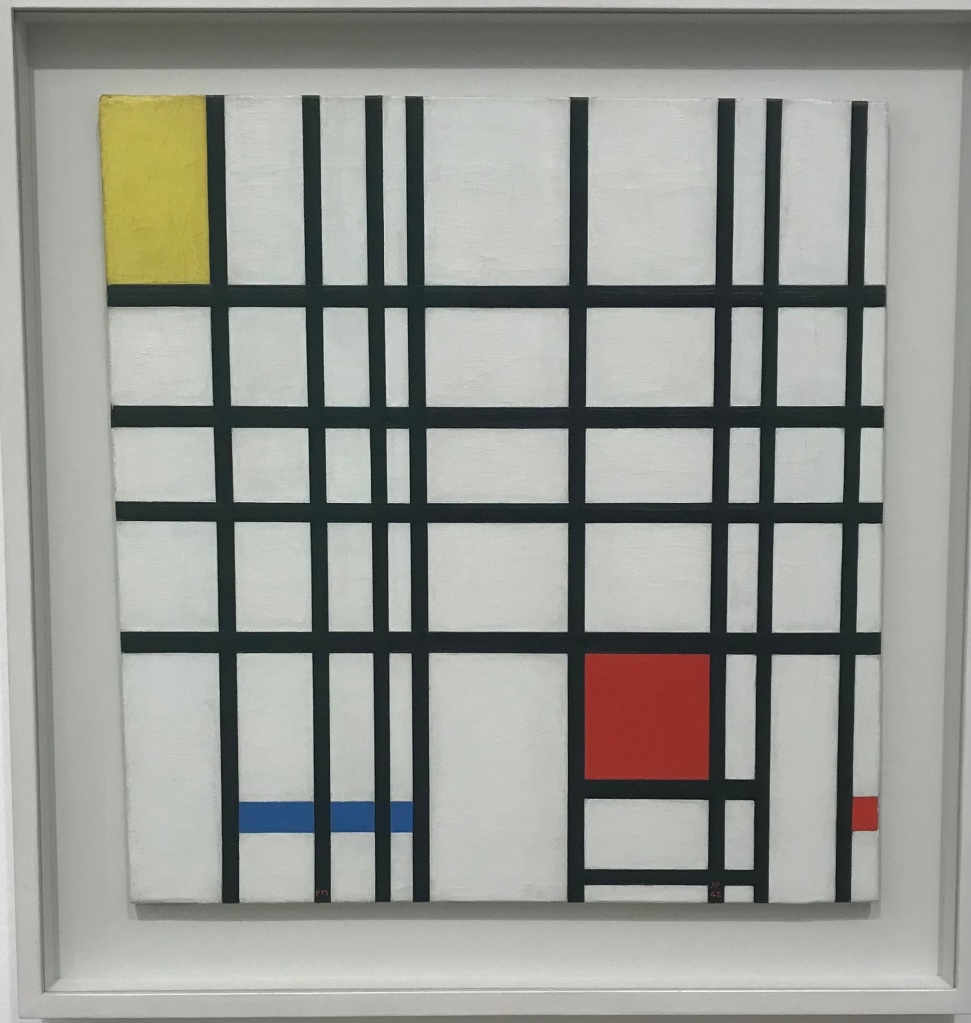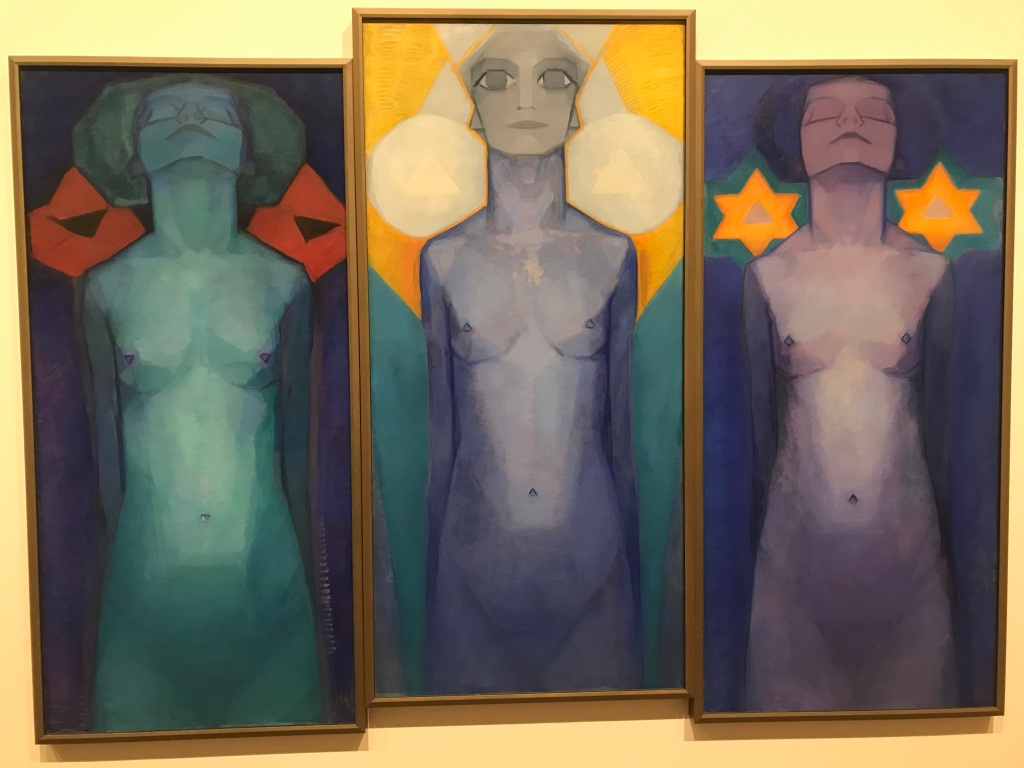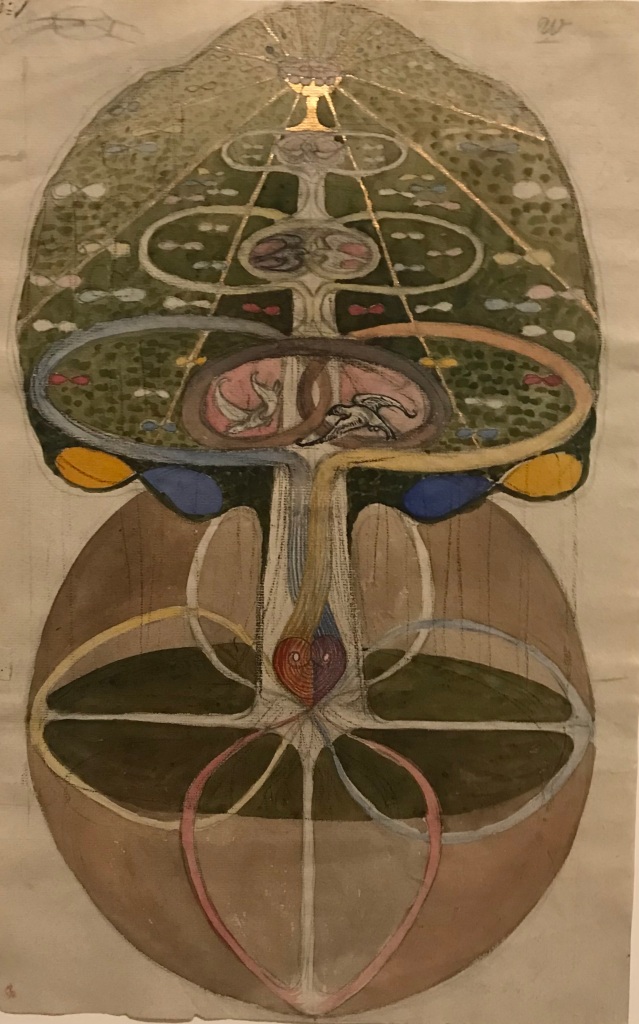Hilma af Klint and Mondrian










This exhibition, at Tate Modern, is a curious pairing. The Tate says both artists started from nature and developed a new abstract language: but they never met and did not influence each other, and their motives seem very different. They both used coloured squares sometimes, but that’s about it.
Mondrian painted flowers and landscapes in a conventional style as well as the rectilinear images with primary coloured blocks for which he is known. For me these push abstraction too far, but they are popular (Katharine likes them).
Klint is problematic in some respects. Most of her works were meant to illustrate her Spiritualist beliefs, and they are heavy with obscure meaning. She said that some were done with spirit guidance (which recalls some of Blake’s pictures, and there is a just a hint of his muscular symbolic figures in Klint’s stuff). She didn’t generally exhibit them, and it’s possible she wouldn’t have wanted them shown. I suppose the curators nevertheless see her as a significant gap in the story of art, but she seems well out of the mainstream. I must say that if her work had been shown in the sixties it might have found a following, and prints of her works might now be selling well alongside esoteric Tarot illustrations and mandalas in that kind of shop.


